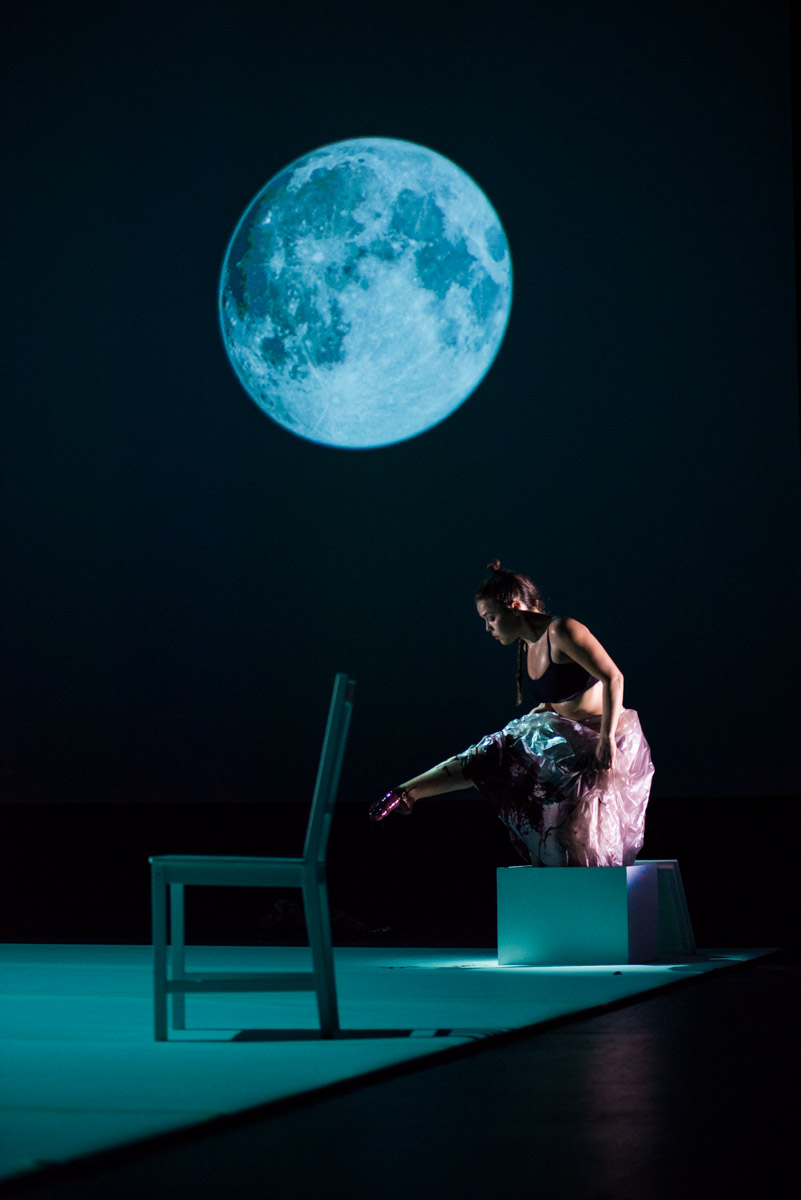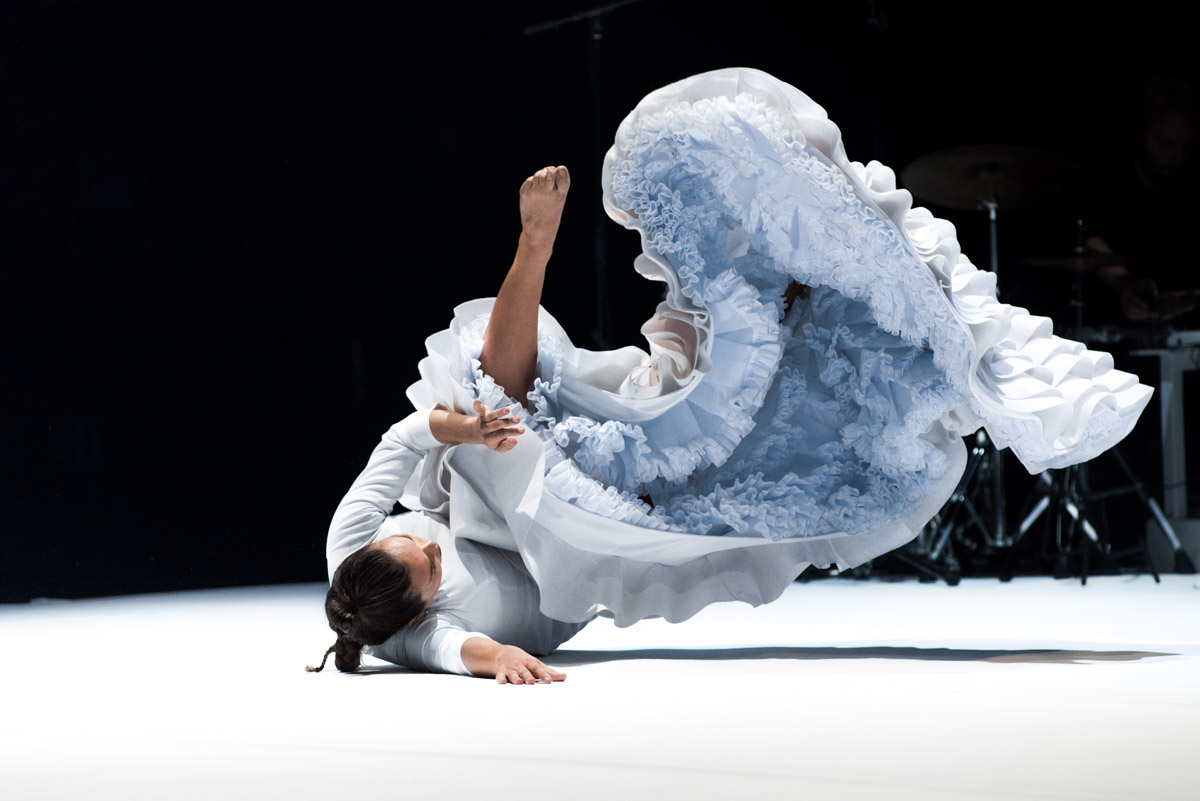Words by Katie Hagan. Fallen from Heaven Sadler’s Wells, London. 09-07/19
When RocÃo Molina rolled on the floor of the unending Sadler’s Wells stage — kicking up her pure white, duvet-like caricature of a flamenco dress with her legs — I and perhaps the rest of the audience thought that this was going to be a very long evening. I had suspicions that the Olivier Award-nominated artist’s Fallen from Heaven was going to be avant-garde flamenco, but watching the first ten minutes definitely felt as underwhelming as receiving the wrong dish in a restaurant.
I was wrong to doubt my suspicions, as what ensued was nothing other than exhilarating. Quintessentially postmodernist in its interrogation of tradition and history, Fallen from Heaven subverts flamenco’s clothing, rhythm, gender roles and its movement vocabularies to striking effect.
Contracting and writhing within the white dress, Molina strips onstage and changes into an all-black ensemble, putting on her flamenco heels whilst a band member sings and the moon shines above. Then the intoxicating footwork starts, with Molina combining masculine and feminine flamenco steps; throwing a few tap moves in there for good measure, because hey why not. If you’re going to undo history then you might as well go the whole hog.
Molina embarks on a call and response battle with her superb band of four musicians, which gave way for jokes, teasing and improvisation. Together, the music and dance was like beat-boxing with the feet.
The influence of Michael Jackson’s Smooth Criminal is prevalent throughout; there’s the ‘how did he do it’ lean, the hat, the flick of the wrists and lightning feet.
As much as being about sexuality, Fallen from Heaven is a carefully planned and articulated piece which mixes different influences, people and histories to create this new form of flamenco. We must remember that flamenco has debatable origins – from southern Spain, to south Asia, to the Arab world. There are many people whose narratives form part of flamenco as it was historically and as it is now.

But history, and sexuality, traditionally likes taxonomy, linearity and boxes. Like all great work, Fallen from Heaven makes us rethink this assumption, without being clichéd or tacky in the process. Blurring flamenco’s long-held traditional identities, Fallen from Heaven turns attention to this in such a humble way that I wondered why it hadn’t been done before.
If you are after the ‘taste of Andalusia’ and want to know if they will be serving oranges fresh from Seville during the performance, then expect Fallen from Heaven to make you reconsider how you eroticise and exoticise the flamenco. Whilst some parts of the Fallen from Heaven mix were slightly misplaced — I wasn’t a fan of the synthesiser — I could still understand the artistic rationale.
Although Fallen from Heaven is a radical challenge against orthodox flamenco, it is also a human tale about personal discovery. Watching Molina is like truly being within her interior; she dances with such conviction and intuition that you can’t help but be immersed. A beautiful experience.
Images Simone Fratini. After this performance RocÃo Molina was presented with the National Dance Award.
